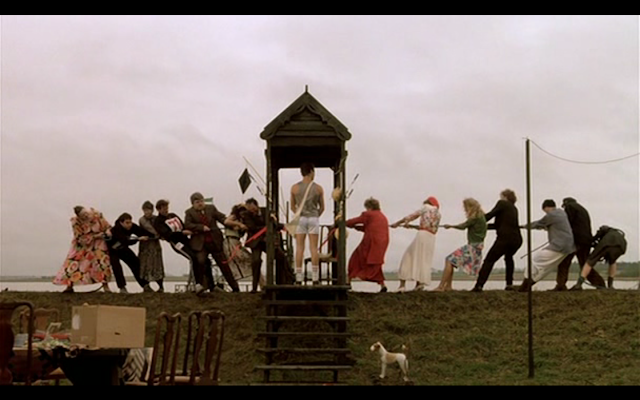"Our geography invades the planet. This is the second voyage, the re-appropriation through knowledge. Geography is nothing else, its birth is there, at the moment at which knowledge becomes universal, in spatial terms and not by virtue of any right."
"In whose interest is it to lay down a law of history if not in the interest of whoever wishes to stop time? Of course it is in the best interests of whoever pursues power in economics, politics, or philosophy to close of genesis... The law is a theft... Metaphysics is operatory, it is the strategic set without which physics and the exact sciences are nothing but partial and dispersed tactics... The most general knowledge that can be formed, the most exact, the most faithful, and the most effective, can be deciphered by a military model. The discourse on method is a science of war.
"To know is to engage in a practice implicated in the ideology of command and obedience."
Michel Serres; Jouvences, Hermès IV, Hermès III respectively
"In the most general sense of progressive thought, the Enlightenment has always aimed at liberating men from fear and establishing their sovereignty. Yet the fully enlightened earth radiates disaster triumphant. The program of the Enlightenment was the disenchantment of the world; the dissolution of myths and the substitution of knowledge for fancy...
To the Enlightenment, that which does not reduce to numbers, and ultimately to the one, becomes illusion; modern positivism writes it off as literature. Unity is the slogan from Parmenides to Russell. The destruction of gods and qualities alike is insisted upon.
Yet the myths which fell victim to the Enlightenment were its own products. In the scientific calculation of occurrence, the computation is annulled which thought had once transferred from occurrence into myths. Myth intended report, naming, the narration of the Beginning; but also presentation, confirmation, explanation: a tendency that grew stronger with the recording and collection of myths. Narrative became didactic at an early stage. Every ritual includes the idea of activity as a determined process which magic can nevertheless influence...
Myth turns into enlightenment, and nature into mere objectivity. Men pay for the increase of their power with alienation from that over which they exercise their power. Enlightenment behaves towards things as a dictator towards men. He knows them in so far as he can manipulate them. The man of science knows things insofar as he can make them. In this way their potentiality is turned to his own ends. In the metamorphosis the nature of things, as a substratum of domination, is revealed as always the same. This identity constitutes the unity of nature."
Adorno & Horkheimer; Dialectic of Enlightenment
"It has frequently been observed that terror can rule absolutely only over
men who are isolated against each other and that, therefore, one of the
primary concerns of all tyrannical government is to bring this isolation about.
Isolation may be the beginning of terror; it certainly is its most fertile
ground; it always is its result. This isolation is, as it were, pretotalitarian; its
hallmark is impotence insofar as power always comes from men acting together,
"acting in concert" (Burke); isolated men are powerless by definition...
...The only capacity of the human mind which needs neither the self nor
the other nor the world in order to function safely and which is as independent
of experience as it is of thinking is the ability of logical reasoning whose
premise is the self-evident. The elementary rules of cogent evidence, the
truism that two and two equals four cannot be perverted even under the
conditions of absolute loneliness. It is the only reliable "truth" human beings
can fal1 back upon once they have lost the mutual guarantee, the common
sense, men need in order to experience and live and know their way
in a common world. But this "truth" is empty or rather no truth at alI,
because it does not reveal anything. (To define consistency as truth as some
modern logicians do means to deny the existence of truth.) Under the conditions
of loneliness, therefore, the self-evident is no longer just a means of
the intel1ect and begins to be productive, to develop its own lines of
"thought." That thought processes characterized by strict self-evident logicality,
from which apparently there is no escape, have some connection
with loneliness was once noticed by Luther (whose experiences in the phenomena
of solitude and loneliness probably were second to no one's and
who once dared to say that "there must be a God because man needs one
being whom he can trust") in a little-known remark on the Bible text "it
is not good that man should be alone": A lonely man, says Luther, "always
deduces one thing from the other and thinks everything to the worst." 4
The famous extremism of totalitarian movements, far from having anything
to do with true radicalism, consists indeed in this "thinking everything
to the worst," in this deducing process which always arrives at the
worst possible conclusions."
Arendt;
The Origins of Totalitarianism




















































